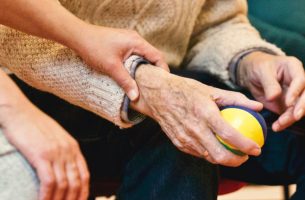Dr Yakup Kilic is taking the reins on the blog this week, talking about a concerning disease hot on the tail of the recent pandemic. But is monkeypox a real concern for the UK? What? There is currently an outbreak of monkeypox in the UK and a handful of other nations worldwide. The disease is […]
Read MoreA guest blog from Dr Yakup Kilic on an important topic close to the hearts of many of us. What? We have high expectations of our medical professionals to find cures or treatments for common conditions. For simple things like stomach bugs or chest infections, we know that if we go to hospital […]
Read MoreThis week, a timely and crucial blog from Dr Yakup Kilic about the impact that a shortage of HRT (hormone-replacement therapy) is having on women in the UK. What? The menopause is a natural stage in a woman’s life when her monthly period stops. Menopause is far more than just hot flushes, as commonly thought […]
Read MoreWelcome to the final edition of the myHSN op-ed written by our co-founder Dr Andrew Stein. In this edition, we discuss how the NHS operates at a local level, and why efficiency gains here are so important. 5. Regional substructures Most parts of the NHS have a regional substructure. Unfortunately, for historical reasons, the […]
Read MoreWelcome to part 4 of the myHSN op-ed on 5 steps to NHS success, written by our co-founder Dr Andrew Stein. Read on to find out why IT and computer systems are a big deal to an organisation like the NHS. 4. Improved IT Successive governments over the past 20 years have tried and failed […]
Read MoreWelcome to part 3 of the myHSN op-ed by our co-founder Dr Andrew Stein. Read on to find out what the NHS needs to change to improve the care you receive. 3. Social care We can’t discuss the NHS without addressing the role of councils in social care, which has a huge effect on hospitals […]
Read MoreWelcome to part 2 of the myHSN op-ed, written by our co-founder Dr Andrew Stein. Today, we focus on a debated idea: the seven day NHS. 2. Seven-day working week Hospitals do not have the full complement of staff at weekends and bank holidays. The most senior hospital doctors (consultants, and their deputies, registrars) […]
Read MoreOver the next five weeks we have a special op-ed series from our co-founder, Dr Andrew Stein. He writes about the five big changes the NHS needs to make not just to survive, but to soar. They are written in order of importance, but all five issues are interlinked, and need to be addressed together […]
Read MoreWhat? In the UK currently, there is a surge of sudden-onset hepatitis cases in children (under 16 years old). The figure stands at 108 children being investigated, with more as yet unreported. As of now, at least eight children have required a liver transplant as a result of hepatitis. Hepatitis is any inflammation of the […]
Read MoreWhat? A smartwatch designed for patients of Parkinson’s disease is due for rollout in the UK under new plans from the NHS. The Kinetigraph® is an innovative wrist-worn device designed to monitor movement symptoms associated with Parkinson’s disease (PD) and assess response to medication and physiotherapy treatments. Those with PD will have several […]
Read More










